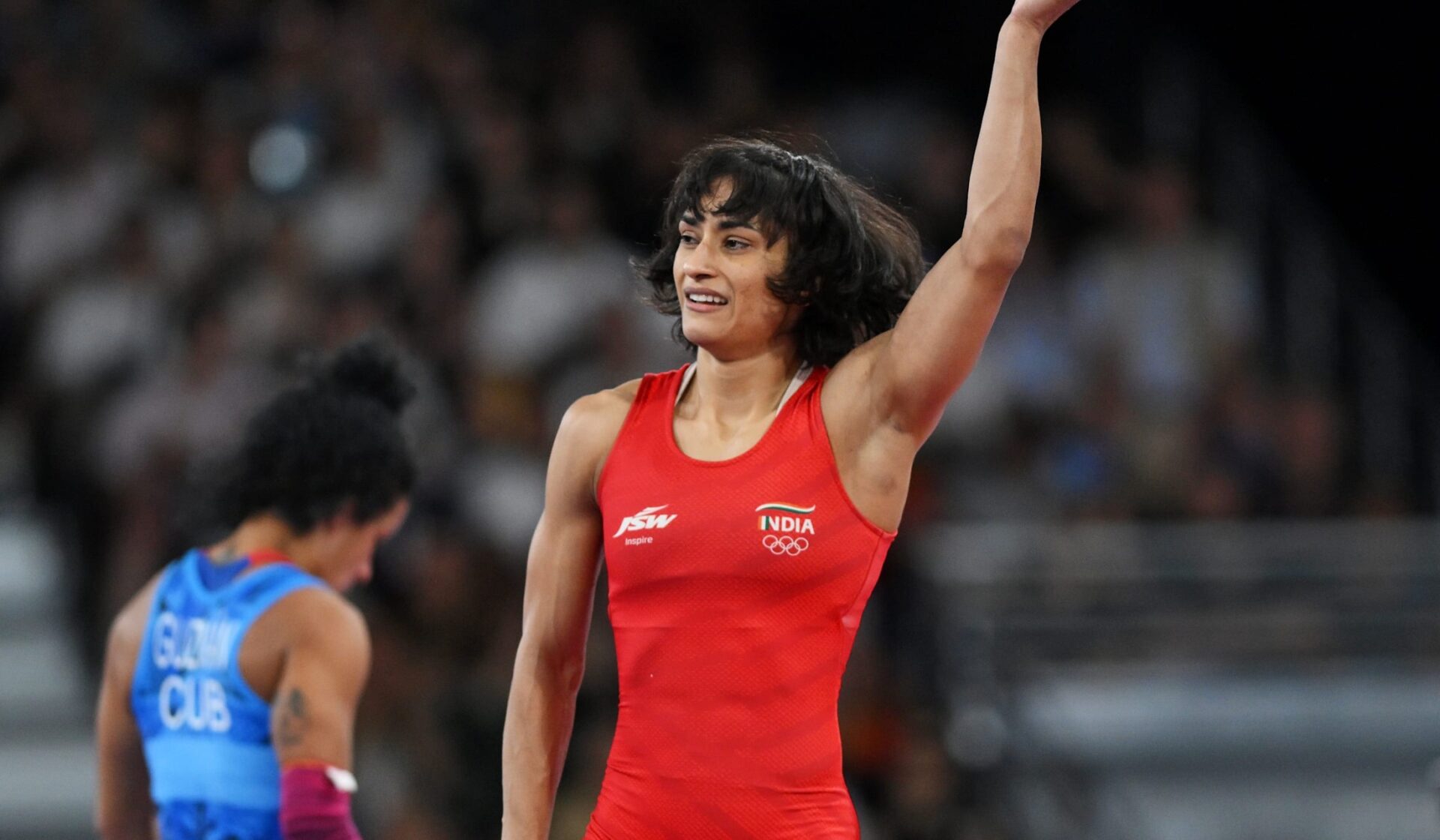In the world of sports, heroes are often defined by their medals. Challenging this notion is Vinesh Phogat, the Indian wrestler whose relentless fight against systemic injustice on her journey to the Paris Olympics has encouraged us to reconsider who we identify as sporting icons.
Vinesh Phogat’s journey to the Paris Olympics was nothing short of extraordinary. Both on and off the mat, the Indian wrestler has faced seemingly insurmountable odds.
In a stunning display of skill and determination, she defeated previously unbeaten champion Yui Susaki before going on to claim victories over Ukrainian wrestler Oksana Livach and Cuba’s Yusneylys Guzmán Lopez, all while maintaining the strict weight requirements of her category.
Her Olympic dream took an unexpected turn, however, when she was disqualified due to variations in her body weight for the 50kg category.
This decision, made by the Wrestling Federation of India (WFI), led to a legal battle in the Court of Arbitration for Sports (CAS) which saw Phogat denied.
For some time, Phogat’s struggles have extended beyond the arena.
In 2023, alongside fellow Olympians Bajrang Punia and Sakshi Malik, she took a stand against alleged corruption and abuse within the WFI.
For 40 days, the athletes protested at Jantar Mantar, demanding the resignation and arrest of Brij Bhushan Singh, a former WFI chief who has been accused of sexually abusing wrestlers.
This act of defiance drew attention to the dark underbelly of Indian sports governance.
Through choosing to return her Major Dhyan Chand Khel Ratna and Arjuna Awards – leaving them on the Kartavya Path pavement – she made a poignant statement that awards lose their meaning in a system that fails to protect its athletes.




















